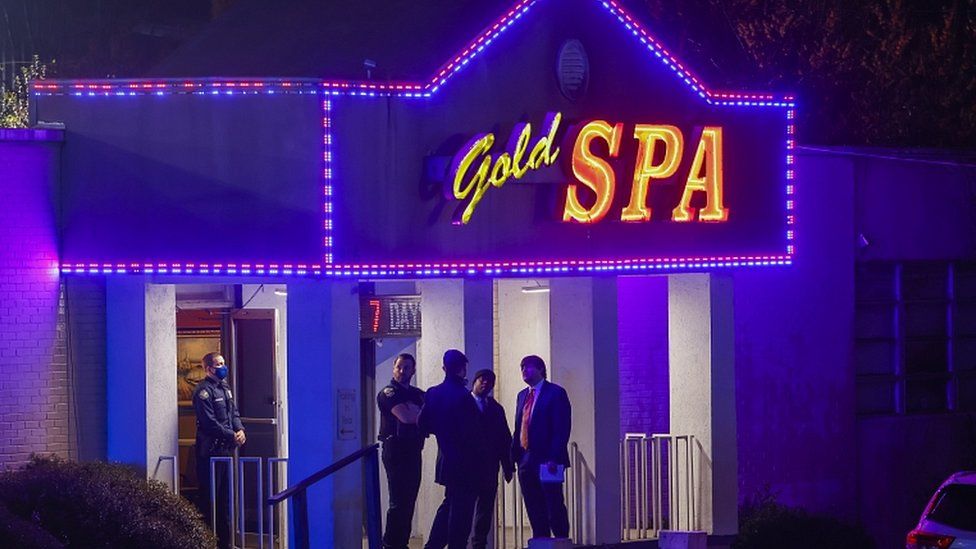KATIE SHIEH WRITES — On the evening of March 16, 2021, a 21- year- old Caucasian man named Robert Long murdered 8 people: Delaina Ashley Yaun, Paul Andre Michels, Xiaojie Tan, Daoyou Feng, Soon Chung Park, Hyun JungGrant, Yong Ae Yue and Suncha Kim, in a mass shooting. This happened at two different Asian spas located in Atlanta, Georgia. Here’s why the type of business targeted and the race and gender of the victims matter in the context of increased hate crimes.
The coronavirus pandemic has exponentially increased racism and violent acts of discrimination against the Asian American community. While individual hate crimes against Asians have been getting some news coverage and a little social media attention, this shooting is what truly brought this issue into the public eye on a larger scale.
Police and government officials have been cautious about calling the shooting a hate crime and have said that they are unsure whether race played a factor. But we can’t ignore the recent rise of violence against the Asian American community. Even Long himself said he targeted the businesses because he saw them as places of temptation for his sex addiction. This suggests that the hypersexualization of Asian women leads to dehumanization, and this shooting shows us that it can ultimately result in death.
In the wake of this tragedy, Asian Americans have come together as a community to raise awareness about the issues they are currently facing. An Atlanta rally was held to honor the victims and speak out against anti-Asian violence. One of the women, Gaby Lynch, who was of Asian descent and attended the rally was quoted as saying: “We need people to know that we are not just silent and quiet.” Such a strong outcry from the Asian American community contrasts with the stereotype that Asian Americans are politically silent and unwilling to speak out against injustice.
This increase in Asian American activism, in response to this heinous crime, is breaking down the barriers of the model minority myth. The general public is starting to recognize Asian voices and faces. In addition, community organization and solidarity with other activist groups shows that Asians are not a monolith and that old-school stereotypes are no longer relevant or, as Biana Jyotishi, Georgia organizing manager for the National Asian Pacific American Women’s Forum put it: “More so than anything, the most resonating emotion that we felt has actually been fear, fear for our safety and fear for our families. We have several members who actually have experiences in, and whose parents have worked in, similar types of services.”

